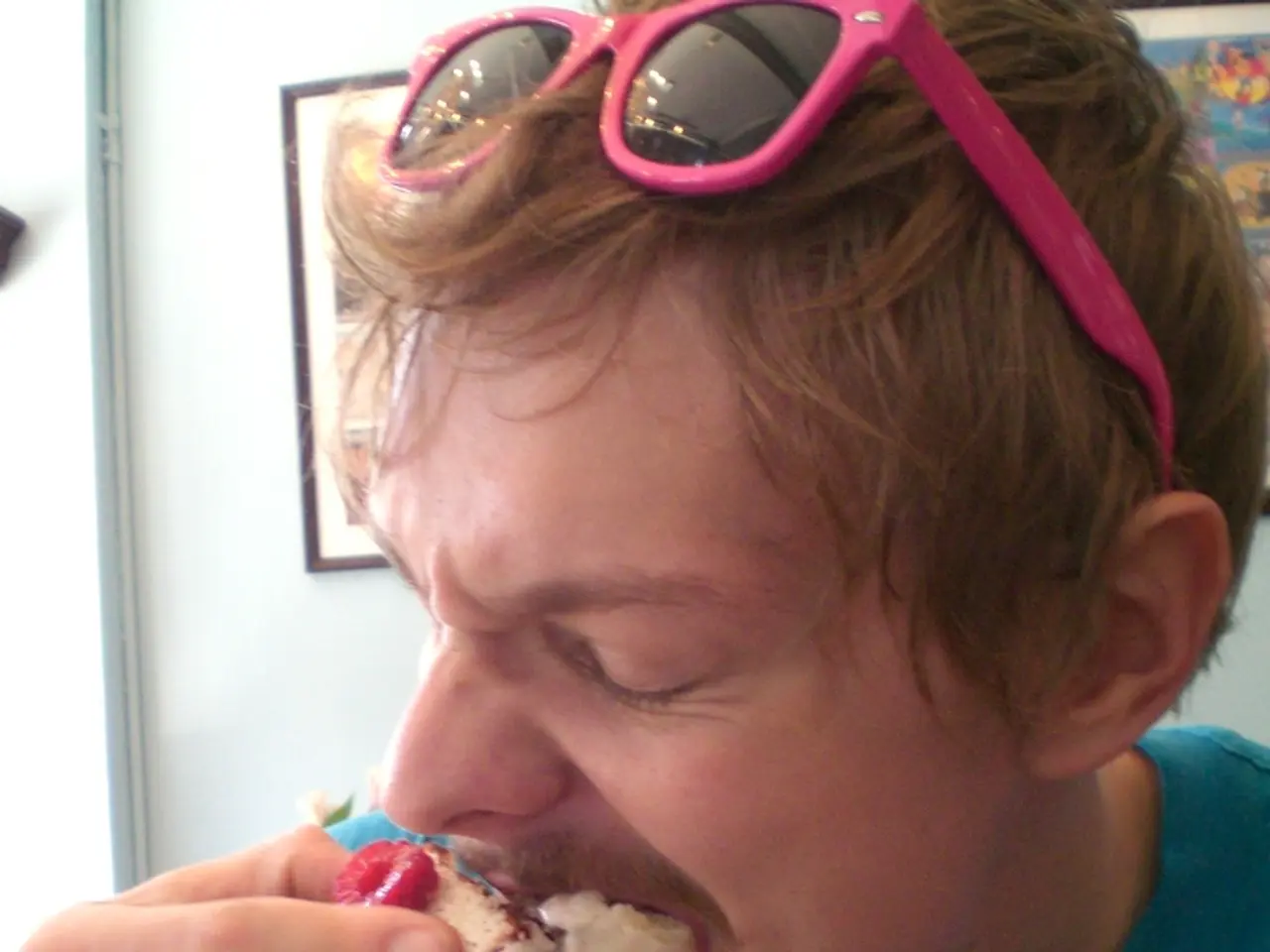Eating and Immediate Bowel Movements: Causes Explored
In the realm of digestive health, one physiological response that plays a significant role is the gastrocolic reflex. This reflex, which triggers colon activity following food consumption, can sometimes lead to an urgent need to defecate. Here, we delve into the factors that influence the intensity of the gastrocolic reflex and offer some insights into managing related symptoms.
The gastrocolic reflex is naturally more active following larger meals or those high in fat content. These types of meals can stimulate stronger colon contractions and bowel movements. However, certain conditions can heighten the reflex significantly.
One such condition is Irritable Bowel Syndrome (IBS), where the gastrocolic reflex can be exaggerated, causing increased and sometimes urgent bowel movements soon after eating. Another factor is constipation, where the body may respond more forcefully to eating or drinking in an attempt to clear the colon, leading to an urgent need to defecate.
Stress and anxiety, although more related to Roemheld Syndrome, can also influence the gastrocolic reflex. By increasing vagus nerve sensitivity and gastrointestinal distress, stress may amplify gut motility and reflexes like the gastrocolic reflex.
Other disorders affecting gut motility, such as certain digestive diseases, may also amplify the reflex. Conditions like food allergies, gastritis, celiac disease, inflammatory bowel disease (IBD), Crohn's disease can affect the gastrocolic reflex and increase its intensity.
While the gastrocolic reflex is a normal involuntary reaction to food entering the stomach, persistent diarrhea (lasting more than a week) could indicate an underlying health issue, with common causes including foodborne bacteria and parasites, food intolerances, viral infections, and previous abdominal surgery.
In most cases, feeling the urge to poop after eating does not warrant a visit to the doctor. However, a person concerned about persistent diarrhea or other digestive symptoms should consult a healthcare professional.
To manage symptoms, identifying possible trigger foods is crucial. Once a person identifies a possible trigger, they should temporarily avoid it to see whether their symptoms improve. Additionally, managing stress through activities such as exercise and meditation may help reduce the intensity of the gastrocolic reflex.
It's important to note that fecal incontinence, which can range from mild to a complete loss of bowel control, is a separate issue from the effects of an intense gastrocolic response to food. Fecal incontinence can occur at any time, not only after eating.
In conclusion, understanding the gastrocolic reflex and its triggers can help individuals manage related symptoms and maintain digestive health. However, persistent diarrhea should always be evaluated by a healthcare professional.
- The gastrocolic reflex, which can lead to an urgent need to defecate, is naturally more active following larger meals or those high in fat content.
- Certain conditions like Irritable Bowel Syndrome (IBS) and constipation can heighten the reflex significantly, causing increased and sometimes urgent bowel movements.
- Stress and anxiety can influence the gastrocolic reflex, amplifying gut motility and reflexes like the gastrocolic reflex.
- Other disorders affecting gut motility, such as food allergies, gastritis, celiac disease, inflammatory bowel disease (IBD), and Crohn's disease, can also affect the gastrocolic reflex and increase its intensity.
- Persistent diarrhea, lasting more than a week, could indicate an underlying health issue, with common causes including foodborne bacteria and parasites, food intolerances, viral infections, and previous abdominal surgery.
- Managing symptoms related to the gastrocolic reflex involves identifying possible trigger foods and managing stress through activities like exercise and meditation.
- Fecal incontinence, a separate issue from the effects of an intense gastrocolic response to food, can occur at any time, not only after eating.




